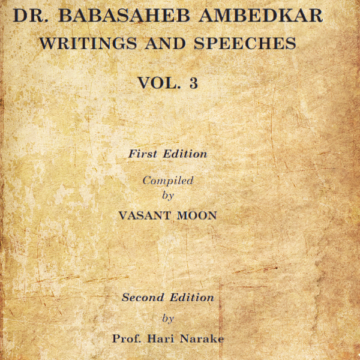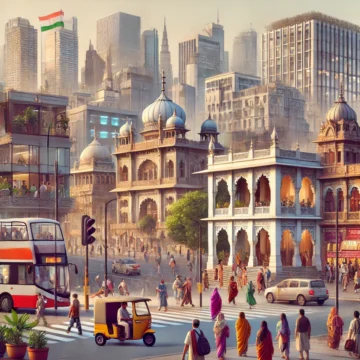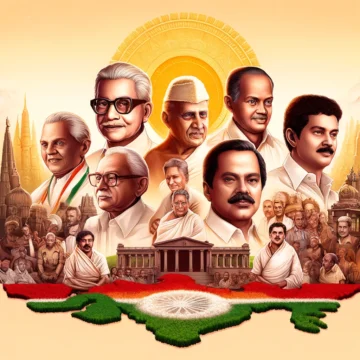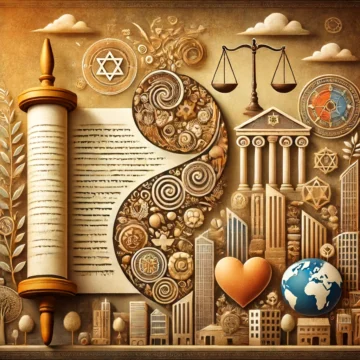Explore the ancient social structures defined by the Manusmriti and their implications for modern societies. This blog delves into the varna system, examining how traditional roles and duties align with today's dynamic societal norms and the ongoing quest for equality and social mobility.
Tag: social justice
Swami Dayanand Saraswati: The Luminary Founder of Arya Samaj II
This installment delves into Swami Dayanand Saraswati's profound impact, examining his revolutionary writings and the societal changes following his demise. We explore how his teachings continue to inspire reform and discuss his significant role alongside contemporaries in shaping modern India's socio-political landscape.
Dayanand Saraswati: The Luminary Founder of Arya Samaj I
This blog explores Swami Dayanand Saraswati's profound influence as he founded Arya Samaj, advocating Vedic revival and societal reform. We discuss his life, teachings, and the Shuddhi movement, delving into how he inspired a rethinking of Hindu practices, championed gender equality, and laid the groundwork for modern educational reforms in India.
Ambedkar’s Buddhist Conversion: Challenging Caste with New Faith
Dr. B.R. Ambedkar’s conversion to Buddhism was a monumental act that not only shifted religious identities but also challenged entrenched caste hierarchies in India. His decision, rooted in a profound critique of the caste system as institutionalized in Hindu doctrines, sparked a significant dialogue on equality and social reform.
Manusmriti Critique of Ambedkar and Its Modern Relevance
Dr. B.R. Ambedkar's critique of Manusmriti dissects its role in reinforcing outdated social norms and caste-based inequalities. This blog explores how despite its historical significance, Manusmriti's influence on modern Hindu practice and legal frameworks is minimal, urging a reflection on societal evolution towards more inclusive and equitable norms.
Ambedkar’s Criticism and the Manusmriti: Insights and Impact
Dr. B.R. Ambedkar’s criticism of Manusmriti highlights its role in institutionalizing caste hierarchies and gender inequalities. This blog explores the evolution from the varna system to a rigid caste framework, shaped by colonial policies and misinterpretations. It also examines modern legal reforms inspired by Ambedkar’s vision, promoting justice and equality in contemporary India.
Manusmriti Criticism: Unpacking Historical and Modern Contexts
Explore the complexities of Manusmriti, an ancient text that has shaped Indian legal and philosophical thought. This blog delves into its criticisms about caste discrimination, gender roles, and more, providing a nuanced view of how historical contexts influence interpretations and the text's relevance in modern debates on social justice.
Poona Pact: Colonial Legacies and Enduring Divisions in Hindu Society
The Poona Pact of 1932, brokered amidst India's freedom struggle, was a crucial agreement between Gandhi and Ambedkar under British colonial influence. It aimed to preserve Hindu unity while addressing caste disparities, setting a stage for future social reforms and the ongoing discourse on affirmative action and equality in modern India.
Hinduism and Social Dynamics: An Analysis
This installment of our blog series explores the complex interplay between Hinduism and social dynamics, particularly examining how secularism is often used to suppress the majority community in Hindu-majority societies. We discuss how Hindu principles intersect with politics and secular policies, highlighting the challenges and pathways toward a balanced and equitable future.
Casteism and Dravidian Politics
This blog explores how Dravidian parties like DMK and AIADMK have utilized caste dynamics for political gains in Tamil Nadu. We delve into the historical roots, policy impacts, and the dual role of empowering and dividing communities through caste-based strategies, examining both the positive outcomes and the deep-seated challenges that persist.
Sanatan Dharma and Caste Divide And Ramabai killings
In exploring the Ramabai killings within the context of "Sanatan Dharma and Caste Divide," we confront the ethical dilemmas posed by the intersection of ancient dharmic teachings and modern societal structures, shedding light on the need for redefining traditional values to bridge deep-rooted social divides.
Secularism in Practice: Exploring Jewish Ethical Contributions
Explore how Judaism's age-old teachings of tzedakah, pikuach nefesh, and tikkun olam intersect with modern secular values, shaping a just and compassionate society. This blog delves into the profound impact of Jewish ethical principles on contemporary secularism, highlighting their relevance in promoting equality, justice, and social responsibility.













